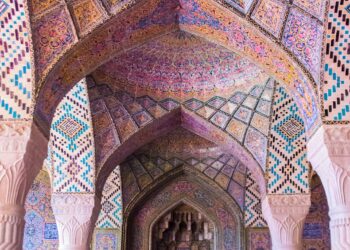Religious tolerance and acceptance are essential values that are needed in our society today. As the world becomes increasingly interconnected and diverse, it is important for individuals to respect and appreciate the beliefs and practices of others. In this blog post, we will explore the concept of religious tolerance and acceptance and why it is crucial for creating a harmonious and peaceful coexistence among people of different faiths.
Religious tolerance can be defined as the willingness to accept and respect the beliefs and practices of others, even if they differ from one’s own. It means recognizing and appreciating the diversity of religious beliefs and allowing individuals to freely practice their religion without fear of discrimination or persecution. Religious acceptance, on the other hand, goes a step further by actively embracing and celebrating the differences in beliefs and practices of various religions.
One of the main reasons why religious tolerance and acceptance are important is that they promote understanding and empathy among people of different faiths. By respecting and accepting the beliefs of others, we can break down barriers and build bridges between communities. This can lead to greater dialogue and cooperation, ultimately fostering a more inclusive and harmonious society.
Furthermore, religious tolerance and acceptance are essential for promoting freedom of religion and ensuring that individuals have the right to worship and practice their beliefs without interference. In a world where religious persecution and discrimination are still prevalent, it is important to uphold the principles of religious freedom and protect the rights of all individuals to practice their religion in peace.
Another reason why religious tolerance and acceptance are crucial is that they can help prevent conflict and promote peace. History has shown us that religious intolerance has often been a root cause of violence and conflict. By promoting tolerance and acceptance, we can work towards preventing religiously motivated violence and promoting dialogue and collaboration among different religious communities.
In addition, religious tolerance and acceptance can help foster a sense of unity and solidarity among people of different faiths. By recognizing and celebrating the diversity of beliefs and practices, we can create a sense of belonging and mutual respect among individuals of different religious backgrounds. This can help build a stronger and more cohesive society where everyone is valued and respected for who they are.
It is important to note that religious tolerance and acceptance do not mean that one has to agree with or adopt the beliefs of others. Rather, it means being open-minded, respectful, and understanding towards the beliefs and practices of others, even if they differ from one’s own. It is about recognizing the humanity and dignity of all individuals, regardless of their religious beliefs.
In order to promote religious tolerance and acceptance, it is important for individuals to educate themselves about different religions and to engage in dialogue with people of different faiths. This can help break down stereotypes and prejudices and foster a greater understanding and appreciation of the beliefs and practices of others.
Religious leaders and institutions also have a role to play in promoting religious tolerance and acceptance. They can use their platform to advocate for interfaith dialogue and cooperation, and to condemn religious intolerance and discrimination. By leading by example, religious leaders can help promote a culture of respect and acceptance among their followers.
In conclusion, religious tolerance and acceptance are essential values that are needed in our society today. By promoting tolerance and acceptance, we can build a more inclusive, harmonious, and peaceful world where individuals of different faiths can coexist in mutual respect and understanding. It is up to each and every one of us to embrace these values and work towards creating a more tolerant and accepting society for future generations.














